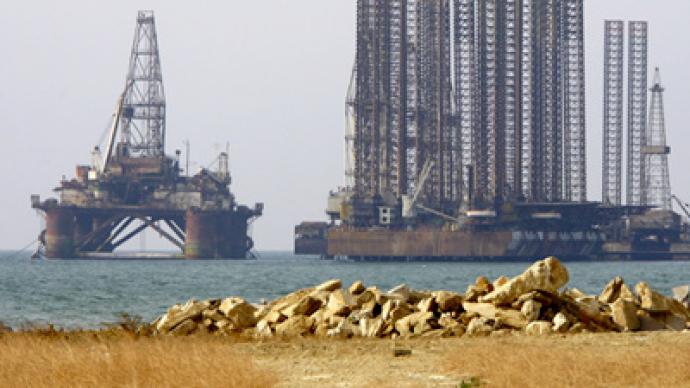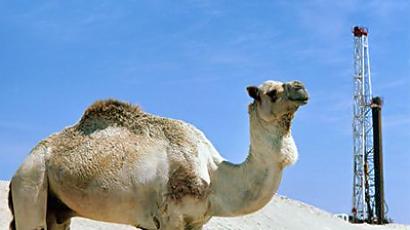The Russian economy and its oil

With higher crude price bringing the budget back into balance but also stoking inflation Business RT spoke with Steven Dashevsky, Managing Director of Dashevsky & Partners about oil and its relationship to the Russian economy.
RT: High oil prices have helped Russia’s budget but is the country too dependent on energy exports?SD: “Well the dependence has declined greatly in recent years, but I think the sad truth remains that, to a very significant degree, Russia’s budget revenues and overall fiscal health is still very dependent on the level of oil prices.”RT: How does the energy sector shape the Russian investment climate?SD: “Well, there are many ways how the events happening in the oil and gas sector influence what is happening in the broader economy. On the one hand this is the biggest source of cash flow generation in the country, so in a sense it’s the biggest source of investment funds, both for the companies, and for the government and also because oil companies invest very significant amounts of money every year, so the ability of Russian oil companies to spend money affects really the entire Russian economy – from transport companies to oil service companies to catering companies to local airlines – so it is still, despite the significant efforts to diversify the economy, it’s a very important source of investment funds.That’s kind of one angle, and another angle is what is happening in the Russian oil and gas sector, since it is the biggest sector in the economy, affects the general investment climate, from the kind of sentiment perspective.So, when something good happens like potentially was going to happen, BP-Rosneft deal, or if there are good events happening, new fields are being developed, new pipelines are being brought on-stream, that gives investor additional confidence that the economy is progressing very well, and people are investing money in it, and the whole country is open for business.Vice versa, if things are not going well, if deals are breaking up, if instead of going to work people going to courts against each other, that clearly creates a big drag on the investors sentiment for all of the Russian economy, not just oil and gas.”RT: Are government moves to diversify the economy away from energy likely to succeed in the short term? And in the long term?SD: “It’s a trick question.Someone told me that the first time the Russian government has become concerned about its reliance on oil and gas revenue, was, in fact, almost immediately after oil and gas was found in Siberia, in 1973, 1974.One of the central communist party committees has discussed the subject. So that was 1974.Almost 40 years later I think we still find ourselves in the current situation where the economy and the budget are very, very, dependent on oil and gas.I personally don’t see how it is going to change.In the near term, and even in the long term, because even if the Russian oil production begins to decline, or the global oil production begins to decline, what will happen at that time would also mean high oil prices, so if global production will be getting lower, the oil price will be getting higher because of that.So, as a result, the Russian intake from commodity exports would more or less stay the same – it would be a big amount of money coming into the country.And there is very few other sources of hard currency the economy could generate.So it would take a miracle to materially change the structure of the Russian economy and of the Russian budget.Even the long term, so I think the only thing you can do is really simply take this natural wealth that has been given to you by god, and simply use it efficiently.I don’t think you can really say ‘let’s become a hi-tech nation, or lets become a tourist mecca, or lets become the provider of savoir vivre products like France.They are just not going to happen.You just take your natural resource wealth but you try to use that efficiently, and try not to waste it.”RT: What is the best way the government can diversify the economy and at the same time take advantage of the energy resources that it has?SD: “Well that’s a slightly different question.The answer to that is very simple.If you are endowed with significant natural resources, one way how you diversify your economy, if this is still the core of your economy, the core of your wealth, the way you diversify and the way you make the economy more diversified is by creating more value added.So I think the clear sort of strategic goal that the Russian government should pursue is increasing the degree of refining of, for example, for oil.So instead of selling simple vacuum gas oil, maybe fuel oil, which is subsequently being refined into high value added products in the west, you build these refining complexes here.Instead of burning associated gas, for example, you create petrochemical refining complexes which process it into various liquefied gas, and various associated petrochemical products, and you export that.So, I don’t think it is fair to say that, ok if you have a natural resource driven economy, you are in a bad situation.I mean Australia has a natural resource driven economy, and so does Canada, and so does Norway, but there are always ways, if you think about things to create value to make it more diversified, and the more you add value, the more added value is in the product you sell the less vulnerable you are to commodity price swings.Because commodity price swings affect, fir4st and foremost, the raw natural resources, and to a much lesser degree they affect the final product.So we all know how much the oil price changes every day, but the price per tonne of rubber or plastic or certain petrochemical specialized products doesn’t change that often.It’s subject to much more longer term contracts.And if you go from producing gas to also producing electricity, that doesn’t change daily, it’s not as volatile.So there are different ways, I think, how you can diversify the economy, and simply make Russia, instead of raw material exporter, into a high quality, high value added energy exporter.In different types of energy, and different types of resources, as your final product.And that I think is the only kind of reasonable diversification strategy.”RT Do you think Russia has Dutch disease and how does energy reliance work in Russia with the import competing sector?SD: “There are elements of Dutch disease, so I think not all the symptoms are here because the oil industry is not, Dutch disease happens when one industry, in this case oil and gas industry, really begins to crowd out investment and jobs and becomes the centre of everything, so the rest of the economy kind of dies.In the Russian case, it’s a little bit different because a lot of the money that flows into the country, via the oil and gas sector, subsequently flows further into the economy.So the impact from the oil and gas sector for example, on the currency is not what it used to be.So, yeah, if the oil prices are high it gets stronger, but it’s not dramatically stronger, and I think the economy is becoming, in relative terms, it is getting better if oil prices are high, instead of getting worse.Dutch disease really happens if there is one sector that is doing well and it drains resources from all the other sectors.In Russia’s case when oil prices are high, all sectors are enjoying it because it trickles down to the entire economy.So I think there are certain elements of it, but I don’t think Russia has Dutch disease, and whatever people say, fortunately if oil prices are high it is good for Russia, and it is good for Russia as a whole, not just for Russian oil companies.”RT: How open is the Russian energy sector to foreign investment?SD: “It’s both open and closed.I think it is fairly open to larger strategic deals.We have seen BP-Rosneft deal, which although it has been declined, for the time being, on technical grounds, and it didn’t happen, the fact that both sides wanted to do it, that the Russian government was willing to receive that investment, and BP was willing to make it, I think it is a big testament to how open the industry is for business.Total bought a big stake in Novatek, there are certain PSAs which continue to operate.If they went through difficult times, but both Sakhalin 1 and Sakhalin 2 are producing energy and making money off it.So on the one hand it is open, on the other hand it clearly has become much more concentrated among the top players, so if you look beyond that, there are various laws on participation in the Russian oil and gas sector, and, in general, if you are an up and coming western company that wants to come in and develop the Russian reserves, I think you would have a problem unless you are a global major that can bring something to the table with technology with capital etc, then I think it is fairly open.So, I think it is more open than many many other emerging markets in the world.I would say that for big companies it is fairly open, for small and mid sized companies it is fairly difficult, simply because the industry has become a lot more concentrated in recent years.”RT: Do you think energy prices will remain about where they are for the short to medium term, and what does this mean for the Russian economy? SD: “Well we went through the period two years ago when the oil went from $90/bbl to $150/bbl down to $30/bbl, and for every price level there was an absolutely credible explanation why this is the right price level.So I really have no idea what the oil price will be in the future.The various research suggest that the price of about $60-$80/bbl makes production of oil economical for most of the producers – so if it drops below $60 a lot of people would have to stop production because they would begin to lose money – and at a price of about $80/bbl everyone is making a reasonable margin for them to continue doing it – so I think we should probably see the oil price gradually weakening a little bit to where it was before the latest rally.And speaking about Russia $75-$80/bbl would give the government more or less a balanced budget and more or less kind of stable existence for one or two years, but I think the way the social expenditures, and the way the budget expenditures have been growing – that pace of growth would not be sustainable with the $80 barrel of oil.So, $75-$80 is OK to balance the budget one or two years – maybe borrow money a little bit externally – going forward, I haven’t done this calculation, but there have been some analysts who have done the math, and it seems that every year Russia would need an oil price of about $5-$10 dollars per year higher to meet the rising budget expenditures.”














